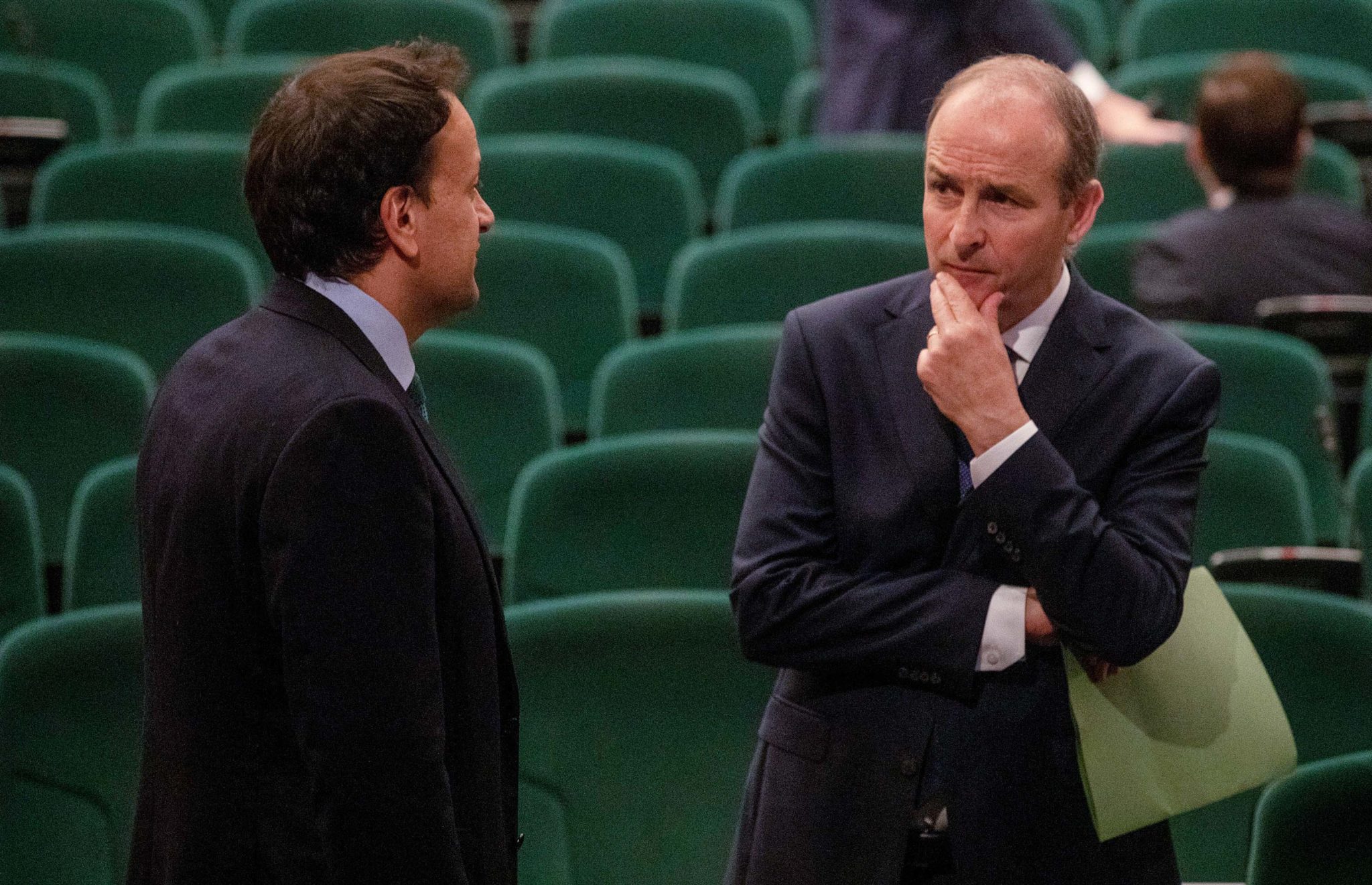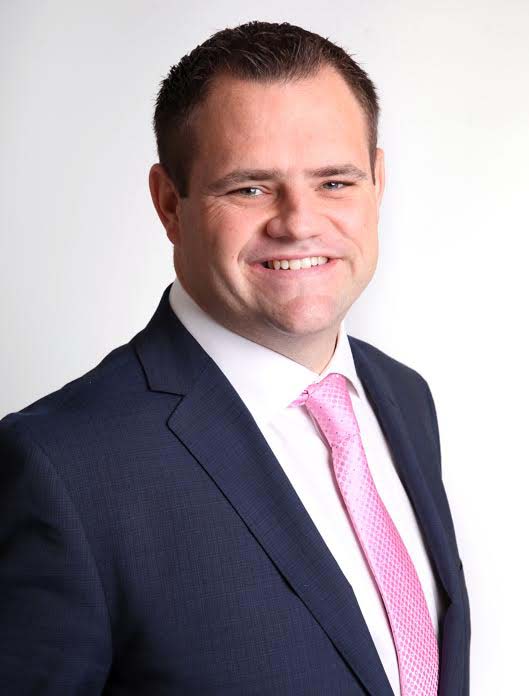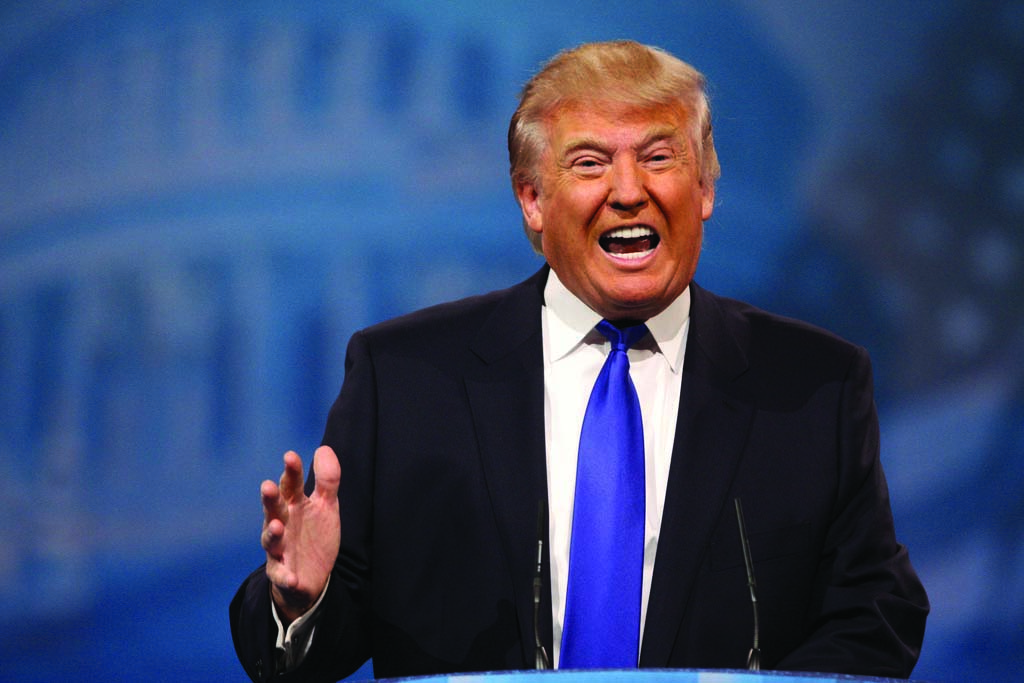- Opinion
- 28 Oct 20

Fianna Fáil TD Mary Butler, Minister of State for Mental Health and Older People, opens up about the impact Covid-19 is having on people’s mental health, her own experiences with postnatal depression, the impulsive behaviour of Donald Trump – and lots more besides.
It's a daunting challenge – presiding over the country’s response to some of its most vulnerable people during a time of unprecedented stress and uncertainty. While Fianna Fáil TD Mary Butler describes her appointment as Minister of State for Mental Health and Older People back in July as the highlight of her career, she also admits that it’s “a huge brief.” With over €1 billion allocated to mental health alone in Budget 2021, an increase of €50 million on last year’s budget, she’s not wrong.
It is inescapable that the country is exhibiting all signs of being on the verge of a mental health crisis – with the collapse of industries, job losses, social isolation, and a pervading sense of fear impacting all aspects of people’s lives. As such, a suitably mammoth response is required from the Government.
Butler, a Waterford native who ran her family’s grocery shop in Portlaw for 17 years, was first elected as a TD in 2016 – topping the poll, and becoming the first new female Fianna Fáil TD elected in nearly a decade. Although she previously served as Fianna Fáil’s Spokesperson for Older People, her involvement in mental health is a whole new undertaking...
It must be a worrying time for you, as Minister of State with responsibility for Mental Health.
The current crisis is having a significant impact on people’s mental health and well-being. Everybody is trying to cope with new and emerging challenges. Two weeks ago, there was huge uncertainty – people weren’t sure what was happening throughout the country. This causes a lot of anxiety.
So how do you deal with that?
The most important thing we can do is try to adapt as quickly as we can. And, for the past seven months, 90% of all mental health supports for those who were already in the system were retained – which is very positive. Everything has changed in this country, so we’ve moved to a blended approach. Instead of having the face-to-face consultations, we moved online very quickly – within the space of a week for some organisations. Now you’re talking by phone, by email, by Zoom, or Microsoft Teams. We had to adapt very quickly.
Advertisement
Were you expecting to be appointed as a junior minister?
I never had any expectations when he was appointing senior ministers, because we have a three-way coalition, with a split of six, six and three. But I had been Spokesperson for Older People for the past four years – and it was a role that I really enjoyed. I’ll be honest with you – I was hopeful, when the Taoiseach was appointing Ministers of State. So when Micheál Martin contacted me on that particular Wednesday, and said that he was going to appoint me as Minister for Mental Health and Older People, it was the highlight of my career. I was absolutely delighted.
Were you apprehensive?
It’s a huge brief. It’s two briefs in one. We have the new Sharing The Vision policy now, which is a hugely 10-year policy, with a whole of government approach. But the most important thing is that it puts the individual front and centre of the service delivery. On World Mental Health Day, I launched the National Implementation and Monitoring Committee. It’s put in place to oversee progress – it will hold me, the department and the HSE to account.
Prior to being appointed to your role, what was your assessment of the mental health services in Ireland?
As a TD since 2016, I would have dealt with many people from my own constituency who would have had many challenges. I’d dealt with various cases locally – for example, young teens or adolescents that might have had to be admitted into an adult psychiatric ward. Last year, for example, 54 teens or adolescents had to be admitted to an adult psychiatric ward during the course of the year – because there wasn’t a facility available for them. So I was acutely aware that there are gaps in the services, and that – at over 2,200 children waiting to be assessed the CAMHS waiting list is too high. That’s something that we’re going to look at immediately.
Would you have had any prior experiences of the mental health services in Ireland through family or friends?
I had prior experience through a family member who was a service user – a cousin of mine. I’d have been in the Department of Psychiatry in University Hospital Waterford, on several occasions over the years.
There is an increasing impression that children could be badly affected by lockdown – in terms of both their social development and their mental health.
Absolutely. Children have been out of school for so long – they missed their friends, their teachers, and even the routine. I’ve talked to many parents, especially parents of teenagers, whose children were in bed half the day and up half the night, on their phones and laptops. Last year, there were 496 teens and adolescents admitted to acute services within the mental health services – 65% of them were girls. And the majority of the presentations were in relation to eating disorders. That’s one of the main challenges we’re facing with teens and adolescents.
Why do you think those kinds of issues are on the rise for teenagers?
I think a lot of it is in relation to social media. It’s related to body consciousness, and body image, and what they’re seeing on Instagram or TikTok. They’re not really sure how to cope with this, and they’re trying to reflect what they’re seeing. That’s hugely concerning. One of the other reasons why young girls are really feeling challenged with self-harm and eating disorders, is because there’s an awful lot of online bullying. People can be very cruel, and they might not realise the impact it has on a young person, when they’re alone in their bedroom at night. It can have a really profound knockout effect, and lead to eating disorders, self-harm, a sense of isolation, anxiety, and panic attacks.
How can you address that?
I’m launching leaflets into 4,000 secondary schools over the next week, which highlight 12 different organisations that can support young people who have mental health challenges. I’ve met with many groups of young people, and a lot of them come back to me to say that they didn’t realise that these supports were there, until it was too late – after one of their friends had taken their own life. Or they had friends that might have been self-harming.
Advertisement
There seems to be a greater willingness on the part of doctors to prescribe psychiatric medication for children in recent years – do you think that’s a good thing?
I am Minister for Mental Health – but I wouldn’t have a clinician’s background. So I would always be slow to condemn a clinician who would try and determine exactly what’s the best course of course of action for the patient in front of them. But, certainly, there are a lot of great therapies out there now – Cognitive Behavioral Therapy and Dialectical Behavioral Therapy – which is hugely important. Unfortunately, DBT has stopped during Covid. It’s very important that those supports are there I definitely think we need a mix of supports. For some people, medication may not be the only answer.
The mental health of young LGBTQ people is also a concern. At what point do you think a young person should be allowed to self-declare their gender?
Sometimes it can depend on the individual – but I would be mindful of the fact that people become adults at 18. Again, I’m three months into the job – I have a huge amount to learn, and I’ve met with the key stakeholders. But my current thinking would be that 18 is the age where young people become adults. To make a decision prior to that, you’d certainly need strong supports of organisations, family, and your clinician.
There’s ongoing talk of banning conversion therapy in the UK – and in Ireland the Prohibition of Conversion Therapies Bill is currently in committee stage in the Seanad. What’s your stance on conversion therapy?
I would be completely opposed to that. I campaigned for marriage equality, and I believe that everyone is entitled to live the best life they possibly can.
We’re also seeing a growing mental health crisis among musicians and other people in the live entertainment industry.
Musicians, and all the arts, have been really seriously impacted because of Covid-19. We all love listening to live music. Obviously all the bands that would have played at weddings and parties have had all their work stopped completely. That’s been hugely challenging.
Are you a music fan?
I’m a big music fan actually – classic rock! I would’ve spent a lot of time going to concerts in my younger days with my husband. That’s all gone now, and everyone misses it. My own daughter had tickets for Electric Picnic, and that’s been put on hold till next year – so hopefully it will happen. We have this fantastic festival, All Together Now, here in Portlaw – where I’m from in Waterford. That festival was on in the Curraghmore Estate for the last two years, and it was hugely successful. There was such disappointment in the local community when it didn’t happen.
 Friday at All Together Now 2019. Copyright Miguel Ruiz.
Friday at All Together Now 2019. Copyright Miguel Ruiz.Advertisement
Is there not a real danger that the impact lockdown has had on the live entertainment industry will lead to an increase in the incidence of suicide?
The early data indicates that from the onset of the pandemic, there was no spike in either suicide or self-harm. However, the figures are evolving constantly, and at the end of the year, we will know more. Connecting for Life is the suicide prevention strategy, and last year, for example, we learned that approximately 421 people took their own lives in this country. But you will also learn that quite a lot of the people who take their own lives are not involved in mental health supports or services.
Leo Varadkar recently said that the people involved in NPHET wouldn’t know what it’s like for people who have to claim PUP, or lose their businesses, due to Covid-19 restrictions. How did you react?
To be honest, I think the Tánaiste was speaking out of a sense of frustration – because there was a lot of uncertainty. The last thing we want to do is give any more uncertainty, and to cause any more anxiety to people, without having the clear recommendations. It’s very important that we have clarification in relation to where we’re going. That clarification did not come until Taoiseach Micheál Martin, came out on Monday night on the Nine O’Clock News, and made it quite clear that we were moving to Level Three at midnight. However, the uncertainty that had prevailed on the Sunday evening and the Monday was not fair on people. I can understand where the Tánaiste’s frustration came from.
 27/06/2020 NO REPRO FEE, MAXWELLS DUBLIN
27/06/2020 NO REPRO FEE, MAXWELLS DUBLINThe 33rd sitting of the new Dáil for the election of the new Taoiseach
Pic shows Leo Varadkar, outgoing Taoiseach and Micheal Martin, Fianna Fáil inside the Convention Centre Dublin for the election of the new Taoiseach.
PIC: NO FEE, MAXWELLS
Do you think NPHET should have to take into account the impact these kinds of statements have on people’s mental health?
No, NPHET’s job is to advise – the Government’s job is to govern. So the Government takes on board what NPHET has to say. NPHET will just look at public health. They will look at the statistics, the criteria, the trends, and the graphs. And they will see that our figures are rising – with really frightening numbers in the last week especially. But the Government has to take into account the social issues, the economic issues and the health issues. You have to take into account the mental health of our people – and also people who are ill with non-Covid related issues. The services have to run now in parallel with Covid.
Even before Covid-19, the statistics surrounding mental illness and suicide in the Traveller Community were shocking – with seven times more Traveller men and six times more Traveller women dying by suicide than the national average. Many people feel this crisis has been ignored by the Government.
You’re quite right. I met with the Travellers’ organisations recently, and I met with Senator Eileen Flynn, at the launch of the National Traveller Mental Health Network submission. It was actually the first engagement I had as Minister. I met them outside the gates of Leinster House, and they presented to me their Mental Health Network submission. I think it’s fantastic to see Senator Eileen Flynn in the Seanad. She’s a great young mum – full of energy. She knows exactly the challenges that Travellers are facing. It’s great to see somebody from an ethnic minority being appointed. What’s important to note is that Sharing The Vision is a policy for everyone – and it does recognise ethnic or minority groups. The National Implementation and Monitoring Committee will have an independent chair, and it’ll have lots of subgroups – including Travellers’ organisations.
One mental health issue that still remains somewhat stigmatised is postnatal depression – despite the fact that it affects 10-15% of women during the first year after giving birth.
Postnatal depression can be very tough – I actually suffered from it myself, after my youngest was born. I’m a mother of three. My eldest is 27, he’s a teacher of history and economics; my daughter is 23, and she’s currently doing a Master’s in local government; and my youngest, 15, is in third year. After she was born I suffered from some anxiety and panic attacks, as a result of a difficult birth. There is no doubt about it – lived experience is hugely important. Postnatal depression can be hugely challenging – especially during the lockdown. When anyone has a baby, we all turn to our mothers! If your mother is living in a different county, and you don’t have the access to that support, that can be very challenging. Pregnant mothers at the moment are finding things extremely difficult, because of the restrictions on going to maternity hospitals. Currently, they’re not able to bring their partner or a family member with them for scans, or for antenatal classes. Thankfully, the partner is able to be present at the birth now.
Advertisement
Did you feel there was enough support there for you, when you had postnatal depression?
I had an excellent GP. He nearly spotted the symptoms for me. I had great support from my own husband and my family, as well. My three sisters live quite close to me, as does my mother. And I have a brother in Waterford city. So I’m lucky to have a lot of family support – which is absolutely great. That was in 2005, when I had my daughter, and I know supports have come a long way since then. But I also think what’s important is that people are more inclined to talk about postnatal depression now. Talking about it is so important.
For some women, the effects of postnatal can be life-altering – and it can have quite a big impact on their families, and especially their partners.
It absolutely can. I heard one of the new TDs, Neale Richmond, speak about that recently – his wife had postnatal depression. It impacts the whole family. When you think of mental health, you probably don’t think of postnatal depression as being a part of that. The thing about postnatal depression, however, is that the recovery rates are extremely good.

Reflecting back on the Ireland you grew up in – there were people in every community who would’ve been known as ‘a character’. Nowadays, they would probably be seen as suffering from a mental health issue.
As my husband says to me, back when we grew up, we would’ve heard ‘their nerves are at them’! That was the line down where we live. Also, going back 30 or 40 years, somebody might have had dementia, and people would say, “Oh, they’re a real character!” They mightn’t have actually recognised what exactly was wrong with that person. But there’s a huge acceptance now, and there’s way more information. Information is key – so people know where they can get the supports. I was born in the ‘60s, and things have evolved so much in 50 years, it’s actually unbelievable.
Finally then – as Minister for Mental Health, what’s your take on Donald Trump, and these impulsive words and actions being broadcast around the world on a daily basis?
What really worries me about Donald Trump, is that he nearly tried to ridicule, or normalise Covid-19. Saying, “Look, I got it, it’s a great thing. I’ve never felt better.” When you consider the amount of people who have lost their lives all over the world, and especially in the USA, because of Covid… I just worry. When you think back to when Donald Trump was talking about injecting disinfectant into people – to ridicule such a serious health pandemic, to the likes of, “It’s great – go and get it and you’ll feel so much better afterwards” – it’s hard to put it into words. When I heard him saying that, I said to myself, “He’s definitely after losing the election.”

It’s hard to know…
It is hard to know. Some people believe every word the man says, and unfortunately that’s the challenge we’re living with – people believe what they want to believe. But it’s bad for any world leader to try and ridicule how serious this Covid pandemic. The world will never be the same again. It will be a long time before we go back to the normality we had last Christmas. As we’re facing into Christmas now, uncertainty is the key word at the moment. This is a really difficult time for people, but the most important thing we can do – and I can’t say it often enough – is recognise that it’s okay not to be okay, and it’s okay to ask for help. Some people are not designed that way – they find it hard to talk about their feelings and reach out for help. If we can lessen the stigma on a daily basis, it will be a job well done, as far as I’m concerned.
Advertisement
This interview features as part of a Mental Health Special, in the new issue of Hot Press – out now:









